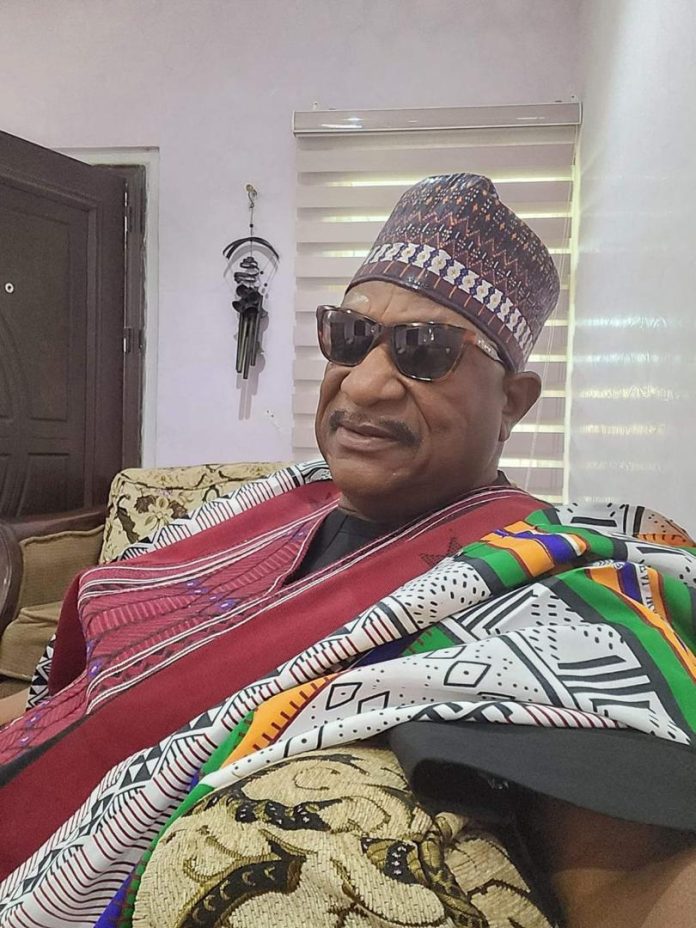Nigeria’s former Chief of Defence Intelligence, CDI, Air Vice Marshall Monday Riku Morgan has asked President Bola Ahmed Tinubu to take the battle on security challenges engulfing the country to the grassroots level for meaningful improvement to be achieved.
The security expert said the federal government must look inward and set the stage for the fight against suspected criminals at the community levels of the country.
Air Marshall Morgan who spoke at the ongoing lecture series of the Peace Corps of Nigeria in Abuja expressed optimism that the spate of insecurity would be brought down greatly when intelligence gathering is kick-started at various local community levels of the nation.
At the lecture attended by eminent Nigerians including some members of the National Assembly, the former Chief of Defence Intelligence asked the President to deploy voluntary organizations especially the Peace Corps of Nigeria to rural areas for intelligence gathering purposes.
He said the autonomous relevance of the Peace Corps operating at the local government and community as a third line of security would be greatly advantageous to the security well-being of the nation.
“It will not be out of place if Peace Corps as a functional grassroots organisation can be deployed by Mr President to gather intelligence at community level that would help our conventional kinetic forces like Army, Airforce and Navy to better target criminal and insurgent elements.
“As a non-governmental organization now evolving to a quasi-governmental organization, the PCN has designed for itself, special development goals, which recognize the non -homogenous nature of the youth as a demographic class in our society.
“Everyone desires peace and security. Conflict is inevitable in any nation in the world.
but when it becomes difficult to resolve emerging conflicts, they result in a lack of
peace and insecurity and no country can develop economically, or politically without
peaceful co-existence among its population and within its borders.
“There had been incessant and visible cases of insecurity in Nigeria; such as terrorism, kidnapping, ritual killings and cultism which have led to fear and insecurity with the resultant effect of sorrow, hardship, pains, destruction of lives and properties.
“Many reasons have been adduced for the lack of security and peace in Nigeria, including youth unemployment, governance that is not participatory, political insinuations, religious problems and clashes among ethnic groups.
“Nigeria faces a plethora of security challenges ranging from violent extremism, to
farmer-herder conflict, banditry, a revived secessionist movement, police repression,
piracy and attacks on oil infrastructure among others. ‘
“This lecture combines both scholarly and practitioner perspectives, by identifying the links between these security challenges and Nigeria’s patronage-based state institutions.
“There is the need to look at the collaborative efforts of kinetic and non-kinetic strategies, especially as regards the role of the Peace Corps as a means of strengthening
national identity, harnessing aspirations of youth to advance governance reform, create more accountability within the security services and avoid the militarization of every security challenge.
“Across the planet, there are currently numerous ongoing low conflict counter-insurgency wars being fought, Iraq, Afghanistan, the DRC, Mozambique and
Nigeria is an example.
“Over the past 75 years, the overwhelming majority of conflicts have been similar in nature. Terrorists, by fomenting armed conflict are able to inflate the political pressure they bring to bear on local governments.
“These movements are often poorly equipped and trained, however ideological fanaticism
coupled with local discontent, rugged terrain and the logistically challenged national militaries give them a disproportionate rate of success, often allowing them to move through the phases of an insurgency war up to occupation and domination of large swathes of territory.
“In the information age, insurgencies have become especially dynamic. Their leaders study and learn, exchange information, exploit seemingly leaderless networks and establish relationships with states in Nigeria.
“Senator George Akume, Secretary to the Government of the Federation (SGF) has said.
President Bola Tinubu’s administration is supportive of autonomy for local
government areas in the country.
“The SGF said that President Tinubu was committed to the rules of law and the
Constitution of the country and had also shown good faith in true fiscal federalism
since he assumed office.
“According to him, the present administration has recognized the fact that local
government areas are the closest tier of government to the people at the grassroots
in particular.
”However, it is obvious to discerning and well-meaning people that Nigeria’s insecurity problems emanate from the grassroots, our villages and local governments, which have huge swathes of ungovernable spaces far removed from our state capitals and big cities, if security is tackled at that fundamental level, then we nip the problem in the bud”, he said.
Tackle security challenges from grassroots – Ex-CDI, Morgan tells Tinubu
Join Television Nigerian Whatsapp Now
Join Television Nigerian Facebook Now
Join Television Nigerian Twitter Now
Join Television Nigerian YouTUbe Now





